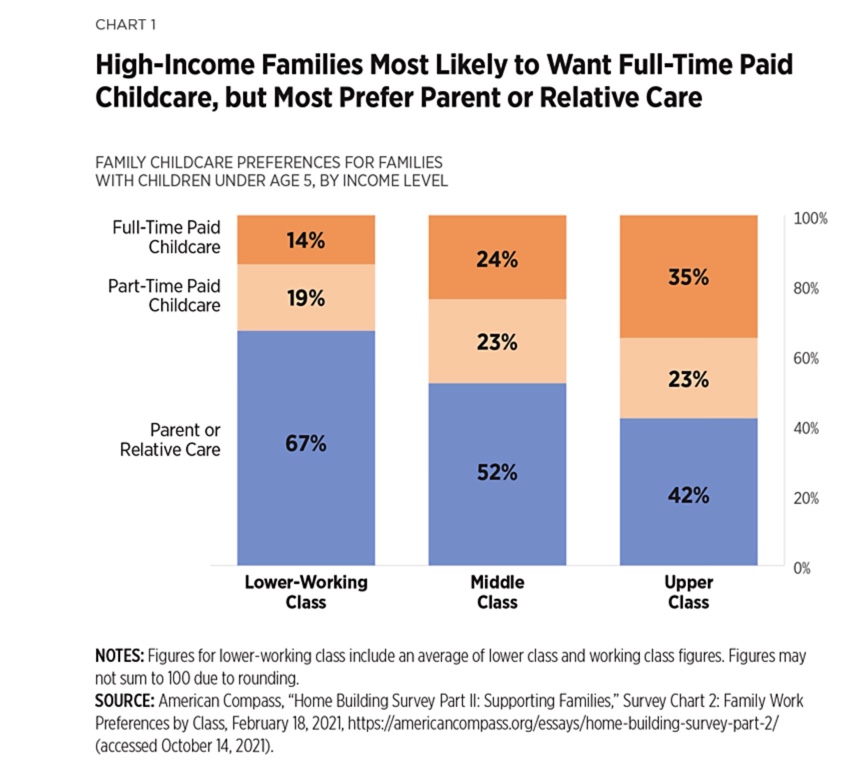Universal childcare subsidies will mostly benefit rich households
One of the biggest decisions that parents have to make is how to raise their young kids. While it may not look like it, there is a lot of variation in child-rearing preferences among different groups of parents. Not all parents want to send their little kids to daycare, and likewise, not all parents want to stay home until their kids are old enough for school.
One of the areas where we tend to see this divide is by looking at income levels. High-income parents typically report that they prefer full-time paid childcare at higher rates compared to low-income parents.

Universal childcare will overly benefit rich parents
This divide in preference for full-time childcare has an important bearing not only on decisions to work, but also on who benefits from the currently proposed universal childcare subsidies. Subsidies, since they depend on the ability of parents to access participating programs, will most likely benefits parents that prefer and are able to access center-based care. High-income parents fit that subsection.
Generally, low and middle-income parents are not only saddled with high prices for childcare, but also face a massive shortage. So, chances are that these groups of parents will have a hard time finding a government-approved provider to access these subsidies.
What makes this more likely is the fact that, unlike current childcare assistance programs which take income into consideration, the Birth Through Five Child Care and Early Learning Entitlement Act is open to all parents regardless of income levels, as explained by the Heritage Foundation.
Parents of all income levels would be eligible to receive subsidies if they are participating in an eligible activity provided their assets do not exceed $1 million, and so long as their childcare costs exceed federally established limits, based on state of residence, income level, and family size. Based on a sliding scale, parents making 75 percent or less of their state’s median income would pay nothing for childcare, parents making 100 percent of their state’s median income would pay no more than 2 percent of their income for childcare, and parents making 150 percent or more of their state’s median income would pay no more than 7 percent of their income for childcare.
Not to mention that these government-funded subsidies will come with excessive rules that most small providers –– like faith-based providers or in-home providers cannot meet. Consequently, the subsidies may end up shifting more resources to affluent families who frequent childcare centers than to services accessed by low-income children further worsening child availability for low-income parents.
All in all, low-income parents will not only have a hard time accessing these subsidies, but they may also suffer a worse crisis due to some unintended consequences of the bill.